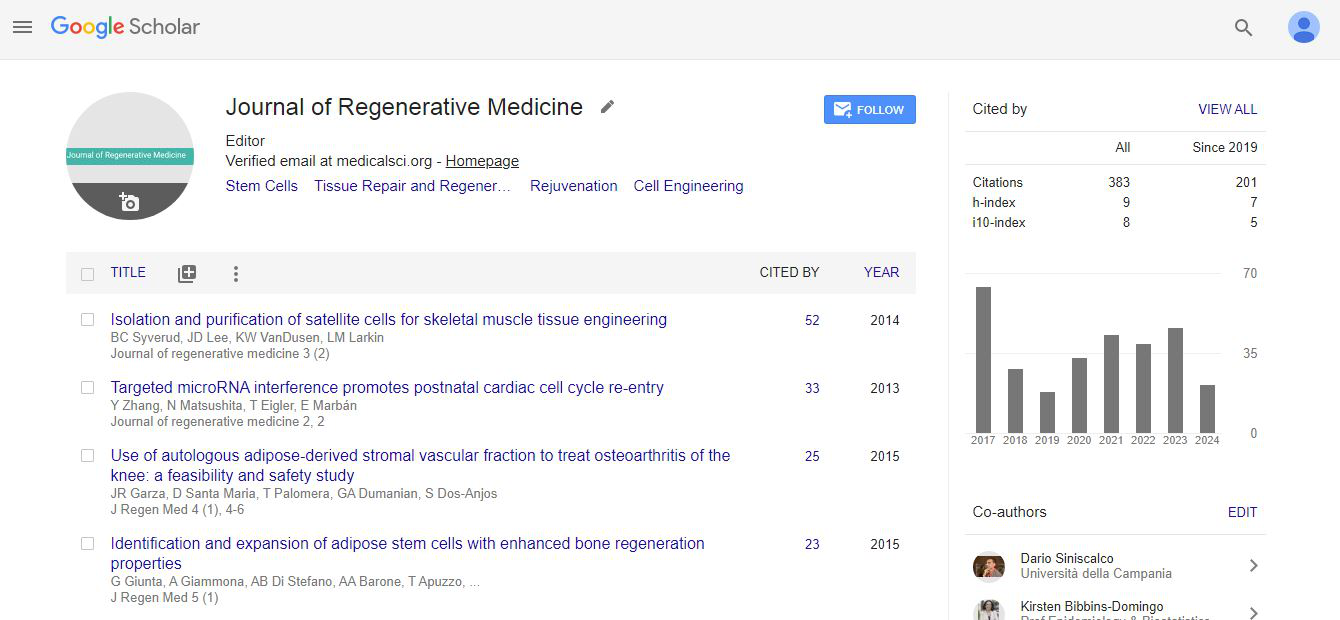Nanotechnology based therapeutic interventions in wound healing
Alexander M Seifalian
The London BioScience Institute Centre, UK
: J Regen Med
Abstract
Chronic non-healing wounds represent a growing problem due to their high morbidity and cost. Despite recent advances in wound healing, several systemic and local factors can disrupt the weighed physiologic healing process. I will present and discusses the role of nanotechnology in promoting the wound healing process. Nanotechnology-based materials have physicochemical, optical and biological properties unique from their bulk equivalent. These nanoparticles can be incorporated into scaffolds to create nanocomposite smart materials, which promote wound healing through their antimicrobial, as well as selective anti and pro-inflammatory, and pro-angiogenic properties. Owed to their high surface area, nanoparticles have also been used for drug delivery as well as gene delivery vectors. In addition, nanoparticles affect wound healing by influencing collagen deposition and realignment and provide approaches for skin regeneration and wound healing. Finally will present data from our current research on wound healing, based on functionalised graphene nanocomposite materials and stem cells technology. Wound healing is a multibillion-dollar industry. The annual market value of successful wound healing product could exceed over 50 billion dollars.
Biography
Alexander M Seifalian, worked as Professor of Nanotechnology and Regenerative Medicine at the Royal Free Hospital and University College London for over 26 years, during this time he spent a period of time at Harvard Medical School looking at caused of cardiovascular diseases and a year at Johns Hopkins Medical School looking at treatment of liver. He published more than 647 peer-reviewed research papers, and registered 14 UK and International patents. He is currently CEO of NanoRegMed Ltd, working on the commercialisation of his research. In 2007 he was awarded the top prize in the field for the development of nanomaterials and technologies for cardiovascular implants by Medical Future Innovation, and in 2009 he received a Business Innovation Award from UK Trade & Investment (UKTI). He was the European Life Science Awards’ Winner of Most Innovative New Product 2012 for the “synthetic trachea”. Prof. Seifalian won the Nanosmat Prize in 2013 and in 2016 he received the Distinguish Research Award in recognition of his outstanding work in regenerative medicine from Heals Healthy Life Extension Society.
E-mail: e: a.seifalian@gmail.com
 Spanish
Spanish  Chinese
Chinese  Russian
Russian  German
German  French
French  Japanese
Japanese  Portuguese
Portuguese  Hindi
Hindi 